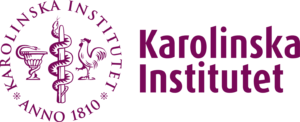
Dr. Joanna Rorbach
Collaboration is the key to research progress. MITGEST brings together a multidisciplinary team of researchers, with different expertise but a common aim: to elucidate molecular mechanisms responsible for mitochondrial function in health and disease. It will not only facilitate scientific progress but will also create a training platform for the new generation of mitochondrial researchers. I am very excited about this opportunity.

Dr Joanna Rorbach is an Assistant Professor at the Karolinska Institute (KI), Department of Medical Biochemistry and Biophysics, Stockholm, Sweden.
Dr Joanna Rorbach’s research focuses on understanding molecular mechanisms that control human mitochondrial gene expression. Her group uses genetic, proteomic, single-molecule and cryo-EM methods to identify new factors and mechanisms involved in mitochondrial post-transcriptional regulation. This aims to create a comprehensive catalogue of proteins involved in mitochondrial gene expression and improve our understanding of their regulation in altered cellular programmes and diseases. Key research activities of Dr. Rorbach’s group include identifying new factors involved in mitochondrial RNA metabolism, deciphering the mechanisms of mitochondrial translation and unravelling the mechanistic details of mitoribosome biogenesis.
- Itoh, Y., Khawaja, A., Laptev, I. et al. (2022), Mechanism of mitoribosomal small subunit biogenesis and preinitiation. Nature 606, 603–608. Rorbach J. is co-author. DOI
- Cipullo M. et al. (2021), Structural basis for late maturation steps of the human mitoribosomal large subunit. Nature Commun;12(1):3673. Rorbach J. is co-author. DOI
- Gopalakrishna S. et al. (2019), C6orf203 is an RNA-binding protein involved in mitochondrial protein synthesis. Nucleic Acids Res; 47: 9386-99. Rorbach J. is co-author. DOI
- Cipullo M. et al. (2021), Human GTPBP5 is involved in the late stage of mitoribosome large subunit assembly. Nucleic Acids Res.; 49:354-370. Rorbach J. and Krüger A. are co-authors. DOI
- Khawaja A. et al. (2020) Distinct translation pre-initiation steps in human mitochondria. Nature Commun; 11:293-98. Rorbach J. is co-author. DOI
After completing a Master’s degree in Molecular Biology at Jagiellonian University in Poland, Dr. Joanna Rorbach undertook postgraduate training at the Institute for Ageing at Newcastle University in the UK, where she became interested in the mechanisms regulating gene expression in human mitochondria. Her PhD led to the identification of several new factors involved in mitochondrial function and illustrated a role for human mitochondrial tRNA synthetases in mitochondrial diseases. After her PhD, she moved to the Mitochondrial Biology Unit (MRC-MBU, University of Cambridge) to work in Dr. Michal Minczuk’s group. There she studied the long unresolved problem of mitochondrial transformation (developing novel methods to overcome a major limitation), deepened her work on mitochondrial gene expression and started studies on mitoribosome biogenesis. In 2016, Dr. Joanna Rorbach joined the SciLife Lab in Stockholm, founded by the Marie Curie grant, as a visiting scientist to establish collaborative structural studies on the mitoribosome. In 2017, she obtained a position as a research group leader in the Department of Medical Biochemistry and Biophysics at Karolinska Institutet, founded by the collaboration between the Max Planck Institute for Biology of Ageing and Karolinska Institutet. This thriving environment has greatly strengthened Dr. Joanna Rorbach’s collaboration with clinical scientists investigating mitochondrial pathologies and enabled her to advance her investigations at the cutting edge of medicine and molecular biology.


